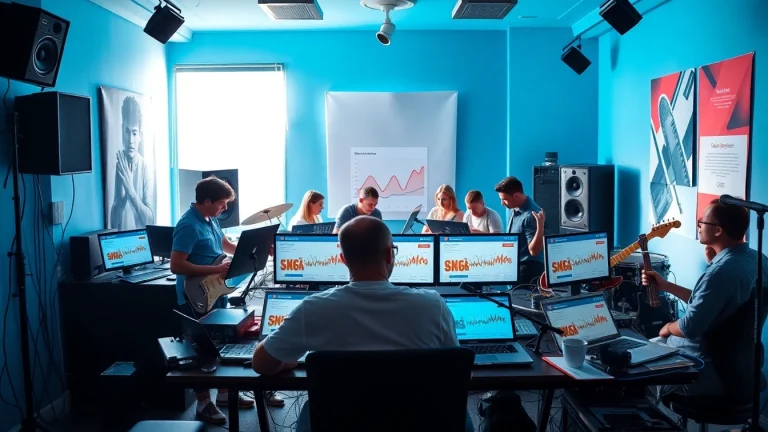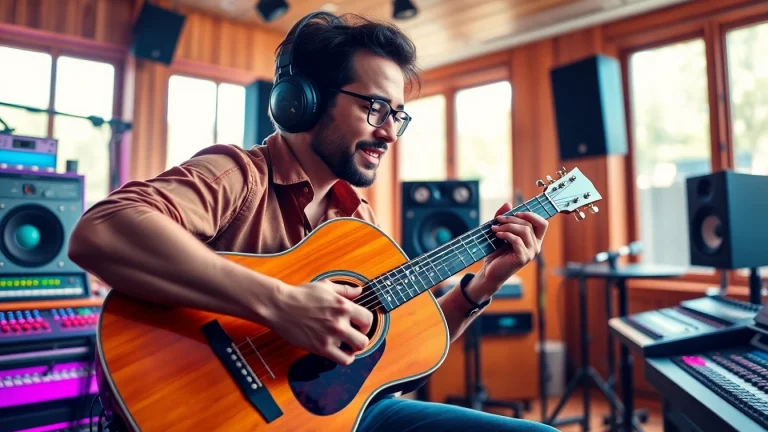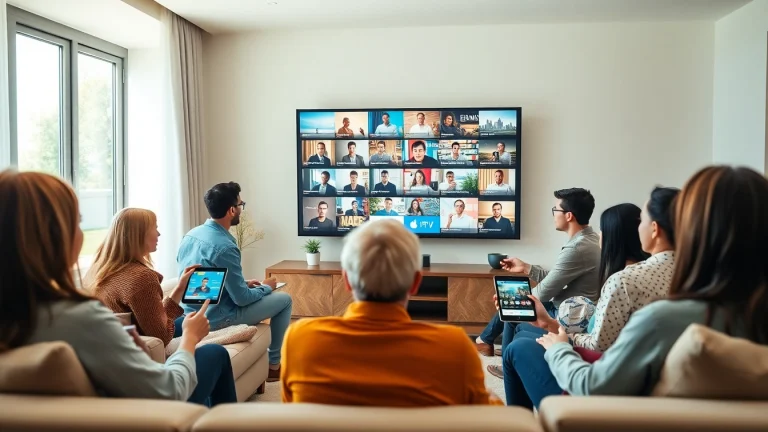
Maximize Your Reach: Premium Music Promotion Services for Every Artist
Understanding Music Promotion Services
In today’s dynamic music landscape, artists must employ a range of strategies to get their work noticed. This often involves leveraging music promotion services that help promote their songs, albums, and overall brand effectively. These services can cover a variety of channels, including social media, radio, online platforms, and music blogs, each providing unique avenues for enhancing visibility and audience engagement.
What Are Music Promotion Services?
Music promotion services refer to a wide array of tools and platforms that help artists promote their music, increase their fan base, and ultimately achieve commercial success. These services can range from digital marketing initiatives to traditional public relations efforts, each tailored to a specific audience or platform. They typically include but are not limited to social media campaigns, playlist placements, music videos, blog features, and email marketing strategies.
The Importance of Music Promotion
Without proper promotion, even the best music can go unnoticed. The rise of digital distribution has made it easier for artists to share their music, yet it has created intense competition with millions of tracks available online. Promotion serves as the bridge that connects musicians with potential listeners, ensuring their music is heard and appreciated. By utilizing strategic promotion, artists can not only attract new fans but also build a loyal following that supports their career over time.
Types of Promotion Services Available
There are various types of music promotion services, each serving different objectives and utilizing different methods. Some common types include:
- Social Media Promotion: Engaging with fans directly through platforms like Instagram, TikTok, and Facebook to build a community around the artist.
- Playlist Promotion: Getting songs featured on popular streaming playlists to reach a broader audience.
- Public Relations: Utilizing press releases and media outreach to gain coverage in online publications, magazines, and blogs.
- Radio Promotion: Pitching songs to radio stations for airplay, increasing exposure.
- Influencer Marketing: Partnering with influencers to promote music content to their followers.
Key Players in Music Promotion
Top Music Promotion Platforms
Several platforms have emerged as leaders in the music promotion industry, each offering distinct services tailored to different segments of the market:
- Ditto Music: Offers a full suite of digital distribution and promotional tools to help artists get their music heard globally.
- Playlist Push: Focuses on connecting artists to Spotify playlist curators, leveraging their extensive network for effective placements.
- Groover: Allows artists to connect with music blogs, radios, and labels, providing honest feedback and promotion opportunities.
- AMW Group: Specializes in a range of promotional avenues, including TV, radio, press coverage, and more, tailored for premium artists.
- LANDR: Combines music distribution with robust promotional tools designed to enhance an artist’s online presence.
Comparing Paid vs. Free Services
When exploring music promotion services, it is essential to consider the differentiation between paid and free options. While free services can provide some level of exposure, they often lack the comprehensive network and resources available to paid services. Paid services typically offer more targeted marketing, personalized strategies, and better access to influential playlists or platforms.
However, artists should evaluate their budget and specific goals. Some free methods, like leveraging social media or engaging directly with fans through live streams, can also yield significant results without financial investment.
Influence of Social Media on Music Promotion
Social media has revolutionized how artists connect with their audience. Platforms like Instagram, Twitter, TikTok, and Facebook allow musicians to interact with fans, share updates, and promote new releases in real-time. The viral nature of content on these platforms means a single post can spark conversations and dramatically increase visibility. Engaging content, such as behind-the-scenes footage, music challenges, and personal anecdotes, creates a more intimate connection and encourages shares, thus amplifying reach.
Developing an Effective Promotion Strategy
Identifying Your Target Audience
Understanding who your listeners are is vital for effective promotion. This involves demographic research—age, location, music tastes, and social media habits—allowing artists to tailor their promotional strategies accordingly. Tools like social media analytics can offer insights into who engages with your content, helping better define characteristics of your target audience.
Setting Goals for Your Promotion
A clear set of goals helps direct promotional efforts. Goals can vary—from increasing streaming numbers and gaining followers to securing features on popular playlists or gaining press coverage. Using the SMART (Specific, Measurable, Achievable, Relevant, Time-bound) framework, artists can devise a structured approach towards their promotional endeavors.
Choosing the Right Channels for Music Distribution
Channel selection is crucial in music distribution. Popular platforms include Spotify, Apple Music, and YouTube, but artists should also consider niche platforms that cater to their genre. Additionally, engaging blogs, influencers, and radio stations can provide alternative avenues for exposure. A multi-channel approach often yields the best results by hitting various audience segments simultaneously.
Measuring Success in Music Promotion
Key Performance Indicators to Track
Analyzing the effectiveness of promotional efforts involves looking at specific Key Performance Indicators (KPIs). Common KPIs for music promotion may include:
- Stream Counts: Total plays per song on platforms.
- Follower Growth: New followers gained over a specific time frame.
- Engagement Rates: Likes, shares, and comments across social media posts.
- Playlist Additions: Number of playlists your songs are featured in.
- Media Coverage: Features and reviews acquired in publications.
Analyzing Audience Engagement
Beyond basic data, understanding the type and texture of audience engagement matters. Tools like social media analytics systems can indicate how well content resonates with fans. Analyzing comments, shares, and the context around interactions can also help identify trends and preferences that can inform future promotional efforts.
Tools to Measure Success in Music Promotion
Many tools exist that help artists gauge the effectiveness of their promotional strategies. Platforms such as Google Analytics track website traffic linked to promotional campaigns, while various social media analytics tools monitor engagement and reach on specific posts or campaigns. For music streaming services, Spotify for Artists and Apple Music Analytics provide detailed insights into listener behavior and demographic information. By leveraging these tools, artists can refine their approach for maximum effectiveness.
Future Trends in Music Marketing
Emerging Technologies in Music Promotion
With the continuous evolution of technology, new opportunities for music promotion are emerging. Artificial Intelligence is beginning to play a significant role, from content creation tools that assist in generating video and marketing content to AI-driven algorithms that suggest promotional strategies based on data analysis. Additionally, virtual and augmented reality experiences are becoming popular for immersive fan engagement, allowing artists to present their music in innovative formats.
Impact of Streaming Services on Promotion Strategies
The dominance of streaming services has reshaped traditional music promotion strategies. Today’s marketing tactics must focus heavily on playlist placements and collaborations with digital influencers who have the power to elevate track visibility. Artists have to adapt quickly to the rapid shifts in how audiences consume music, ensuring they are present on multiple platforms to maximize reach.
Predictions for the Future of Music Promotion
As the music industry continues to transform, the future of music promotion seems to lean towards greater customization and technology integration. More artists are likely to become skilled content creators, utilizing video and storytelling to engage fans. In addition, data-driven decision-making will rise, helping artists to tailor their promotion strategies even more precisely to audience preferences. Platforms that effectively synthesize data analysis with creative storytelling will likely lead the charge in music promotion services.


